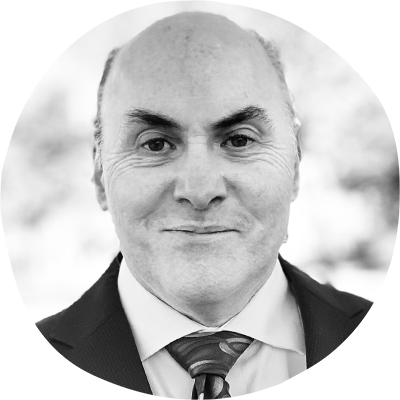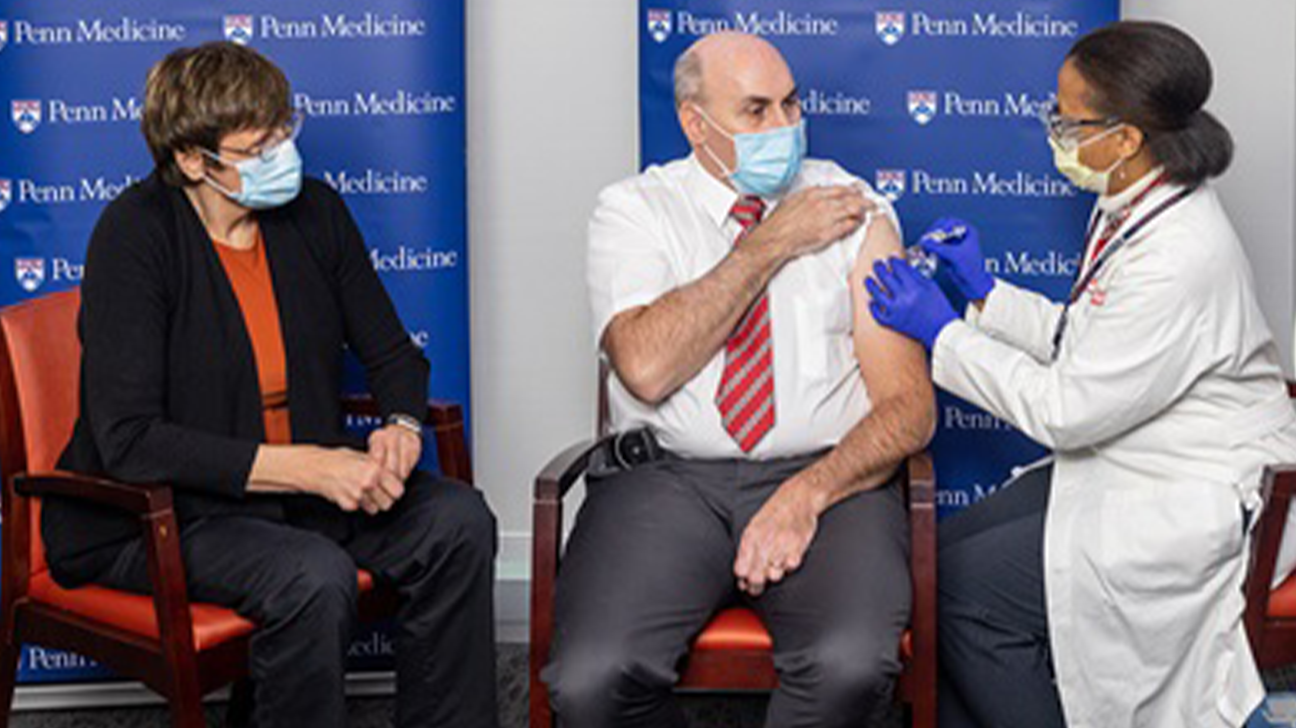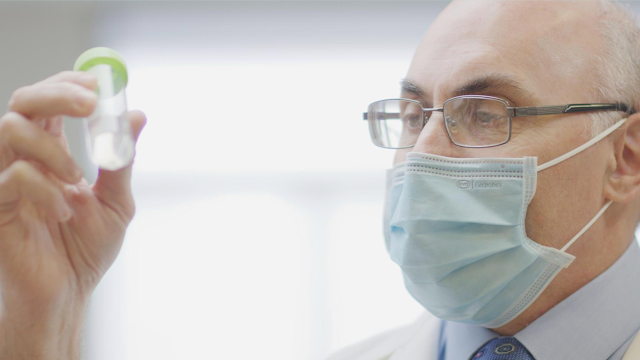COVID-19 Vaccine Researcher with Type 1 Diabetes Wins Nobel Prize
But as one of the two key researchers behind the science used to develop the first COVID-19 vaccines, his name has leapt into public view as of late 2020.
Self-described as "just a basic scientist," Weissman is a modest man who has spent his lifetime devoted to research.
He also happens to be living with type 1 diabetes (T1D) for more than 50 years, spanning the two decades that he and his colleagues have spent digging into the vaccine-related research that's become so critical to public health at the moment.
Weissman may not be advertising that he lives with T1D, but a recent photograph of him getting his own COVID-19 vaccine shot in mid-December tipped off the public that he's sporting an insulin pump on his belt.
DiabetesMine spoke with Weissman by phone in early 2021, just as President Joe Biden took office and the scattered vaccine distribution was making headlines.
Since then, Weissman has gone on to become one of Times’ Heroes of the Year for 2021. because of his research. And then incredibly on Oct. 2, 2023, Weissman and his colleague who worked on the COVID-19 vaccines received a Nobel Prize of Medicine.
Here is my interview with Dr. Weissman in early 2021, where he shared his T1D story as well as his science-based thoughts on COVID-19 vaccine safety for those with diabetes, and how his career focus goes beyond just this particular chronic condition he's lived with since childhood.
Can you tell us about your diagnosis with T1D?

I was 5 years old when diagnosed, and there was no one else in the family with type 1. It was 56 years ago, and diabetes was very different then compared to how it is now.
Control wasn't very good. We lived in the Boston area and I went to the Joslin Clinic, and what struck my parents the most was that our physician said that I probably wouldn't live past 50, because diabetics didn't live that long.
Doctors finally told me things could be different when I was an adult... but I'd thought that my entire life.
Did that influence your career direction?
I'm not really sure it had any impact. I was always a scientist growing up. Maybe my diabetes pushed me toward medical school, but I doubt it. That was just an area I was interested in because of the science and research.
You’ve been shown in photos wearing an insulin pump.
Yes, I have had an insulin pump for about 20 years or so. I now wear the new Medtronic MiniMed insulin pump. It has shown up in some of the photos because of where I wear it.

How does it feel to be a driving force for something so critical in fighting this global pandemic?
My family always yells at me about that, about how I should be much more excited. I'm really just a basic scientist, and am happiest when I'm sitting in my lab thinking of and working on new things.
I'm certainly excited that the vaccine is being used and that it's likely to get this pandemic under control.
I am a clinician and researcher and, yes, ever since I started doing research, my dream was always to help develop something that could benefit people. Maybe that does go back to my type 1 diabetes, in wanting to do something to make people better, cure disease, or do something to help.
How did you actually get started in vaccine research?
I was an MD, PhD in medical school, and after my residency training I did a residency in immunology at the National Institutes of Health (NIH). I've been doing research ever since.
I started in this messenger RNA (mRNA) research area in the late 1990s. Along with my partner, Dr. Katalin Karikó, also a Penn researcher who has joined the company BioNTech, we started working in mRNA about 22 years ago.
We made our big finding 15 years ago in mice, and that finding is what's being used in the Moderna and Pfizer-BioNTech vaccines. It's that enabling technology that we and other scientists have been working on ever since, on how to use it to develop mRNA.
For all of us non-scientists, can you explain how these new vaccines work?
These recent COVID-19 vaccines use a breakthrough gene-editing technique that modifies mRNA — the molecule that essentially puts DNA instructions into action — to induce an immune response.
Our discovery increases mRNA stability while at the same time decreasing inflammation, further paving the way for these modified mRNAs to be used in a wide array of potential vaccines and treatments.
Unmodified mRNA molecules are normally unable to slip past the body’s immune system, but the research we've done made key changes to the molecular structure and manufacturing of mRNA that allow for it to avoid immediate immune detection, remain active longer, and enter into target sells to efficiently instruct them to create antigens or other proteins that fight or treat disease.
The applicability of this mRNA technology is enormous. So, we're using it for autoimmune diseases, for Duchenne muscular dystrophy, for cardiac fibrosis... just a whole bunch of genetic disorders. The list goes on and on, for everything that can be done with this.
How do you respond to those who feel these vaccines were ‘rushed’ and might not be safe?
They're certainly not unsafe. I look at it this way: It's not brand-new technology. Scientists had been studying vaccines using this mRNA platform for at least 6 or 7 years before 2020.
What's new is that it's the first time this mRNA technology has been used in people. The research and clinical trials all happened and the regulatory side of this was what moved more quickly than it has before.
Some say it was rushed or moved too quickly into people... but had we moved more slowly, we would've been yelled at for not developing this for people fast enough. We just can't win that one.
What people have to understand is that the reason it was developed for people so fast is because the platform technology is so amenable to fast development. And that's based on many years of work and research.
After that, all the clinical trials for the COVID-19 vaccines were done at the same time as each other. Nothing was rushed, no corners were cut. No safety profiles or analyses were avoided.
Everything was done the way it's supposed to be. The reason it took this amount of time is because that's the amount of time it took to do everything required.
Is your team monitoring vaccine response data now that people are getting doses?
Not directly. The pharmaceutical companies control all of that data, and they don't like to share.
I do hear about the data, follow it, and know it. But I'm really a basic scientist, who develops the vaccine, and then the pharmaceutical companies produce it and give it to people.
Can you talk about what it feels like watching the problematic vaccine rollout in the U.S.?
There are a lot of people to blame for the distribution, but in the end we've never made a billion doses of mRNA vaccine like this before.
That means everything involved — places where the vaccine's produced, the raw materials, the people involved — needs to be scaled up to make this vaccine.
There are not enough glass vials in the world for all of these vaccines, and it all takes time to develop and distribute the doses we need. I think everyone is doing the best they can, as quickly as they can.
As a T1D yourself, what do you say about the vaccines being safe for those with diabetes?
People characterize type 1 diabetes in different ways. Some describe it as an autoimmune disease, and it certainly is when it starts.
But after the beta cells are gone, to me it's no longer an autoimmune disease. There are no more inflammations or immune system cellular attacks like there is with lupus, where you can control it for a while but it flares up and keeps coming back.
So, yes, I do consider it an autoimmune disease, but I don't consider long-term diabetics as suffering from an autoimmune disease — which is the big concern.
It's unknown how this vaccine is going to act in the setting of autoimmune disorders... likely, it will be fine. Twenty million people have received it and many have autoimmune diseases.
We haven't heard of any bad flares or activations of autoimmune diseases. To me, the bigger concern is type 2 diabetes (T2D) in affecting poorer COVID-19 outcomes.
When getting your own COVID-19 vaccine shots, did you notice any diabetes effects?
I received my first injection in December and the second in early January, but no, I didn't see any noticeable effects on my diabetes.
There may have been small fluctuations in my blood sugars, but I wasn't really paying too close attention to notice anything more than the usual.
What’s taking up your time now that the COVID-19 vaccines are launched?
My work is all mRNA-based. We're doing a bunch of different vaccines, for HIV, influenza, genital herpes, malaria, norovirus... just a whole bunch of different diseases.
We're working on what we call a "pan-coronavirus" vaccine, which is more comprehensive. There have been three big coronaviruses in the past 20 years, and there will be more.
We're trying to make a vaccine for the next one that will appear, so the vaccine is ready to go if and when the first cases appear.
We also have a lot of gene therapy work ongoing, including a simple IV injection to cure sickle cell anemia.
The notion of gene therapy targeting T1D is fascinating, isn’t it?
Certainly, it is. I think right now the best developing therapies are the beta cell encapsulation and transplants. But in the future, who knows what gene therapy will lead to?
As a T1D, do you follow the progress of diabetes research too?
I certainly do follow it and find diabetes research interesting. I talk to the researchers at Penn Medicine, who work on diabetes and beta cell transplants.
Thanks for taking the time to talk with us, Dr. Weissman! Our Diabetes Community so appreciates all the years of work you and your colleagues have put into creating critical solutions for public health crises.
Congrats to Dr. Weissman and his colleague who were named Nobel Prize of Medicine winners for 2023. Read the Penn News release on that exciting development. Weissman’s work also made him one of Times’ Heroes of the Year for 2021.
- - - - - - - - - -
Originally published at DiabetesMine in February 2021, under headline "We Can Thank This Researcher with Type 1 Diabetes for the COVID-19 Vaccines"


Comments